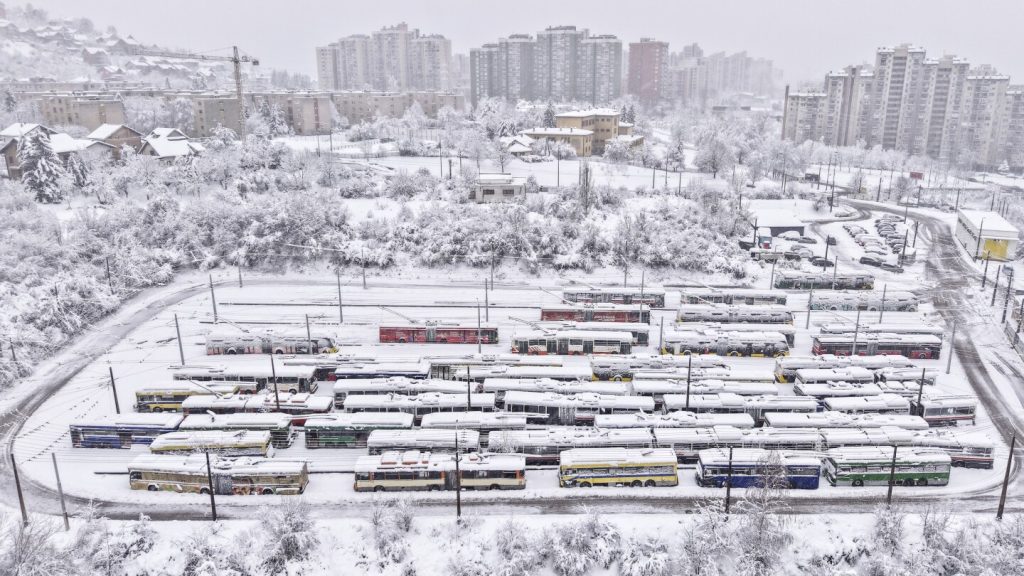The body of a Hungarian hiker who got lost in a blizzard in the Alps last week has been found by Slovenia’s mountain rescuers. The man was located in a gorge with no signs of life, and efforts are underway to transport the body. The rescue team descended into the gorge using ropes after a Slovenian police helicopter flew them near the site. The hiker was found 250 meters lower than the accident spot, buried under more than two meters of snow. The female Hungarian hiker who was with him was located and transferred to safety on Monday, but the search for the man with a broken leg continued.
The snowstorm that led to the hiker’s death also caused power outages affecting tens of thousands of people throughout the Balkans. In addition to power outages, the storm resulted in the closure of schools and caused traffic disruptions in countries such as Croatia, Bosnia, and Serbia. Slovenia, known for its mountaineering and hiking opportunities in the Alps, has constantly urged visitors from abroad to check weather conditions and be prepared before embarking on mountain activities. The incident serves as a reminder of the unpredictable nature of mountain weather and the importance of being well-equipped and informed before setting out on such adventures.
The difficult conditions, including strong winds, hampered the efforts of Slovenian rescuers to locate the missing hiker in the days following the blizzard. Despite the challenges, the rescue team persevered and eventually located the body in the gorge. The use of ropes and helicopters played a crucial role in the search and recovery operation. The tragic outcome highlights the risks associated with mountain activities, particularly during extreme weather events, and underscores the importance of proper planning and safety precautions for anyone venturing into the mountains.
The incident has sparked conversations about safety measures and emergency response protocols for mountain activities in Slovenia and other countries with similar terrain. Authorities may consider reevaluating rescue procedures and equipment to enhance their effectiveness in challenging conditions. The need for awareness and preparedness among hikers, both locals, and visitors, is emphasized to prevent future tragedies. The importance of heeding weather warnings, staying on designated trails, carrying emergency supplies, and notifying others of one’s planned route is underscored as essential practices for safe mountain exploration.
The Hungarian hiker’s death serves as a somber reminder of the inherent risks of outdoor activities in mountainous regions, and the critical role of well-trained and equipped rescue teams in providing assistance during emergencies. It also highlights the solidarity and cooperation among international rescue teams in responding to incidents involving foreign nationals. While the outcome of this particular rescue mission was tragic, it underscores the dedication and commitment of rescuers to locate and assist those in distress, even in challenging and dangerous conditions. The incident serves as a poignant reminder of the fragility of human life in the face of nature’s unforgiving power, and the importance of caution and preparedness in outdoor pursuits.


